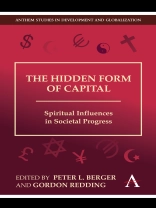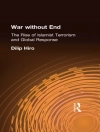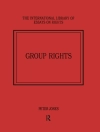‘The Hidden Form of Capital’ presents evidence from several parts of the changing world about how the realm of the spirit affects the economy. Instead of adding to the theoretical speculation on the role of culture in economic progress, this book provides evidence from recent analytical studies in Europe, Asai, Africa, Russia, and the United States.
Innehållsförteckning
Contributors; Preface; Introduction: Spiritual, Social, Human, and Financial Capital; Do Some Religions Do Better than Others?; Spiritual Capital and Economic...
Om författaren
Peter L. Berger has been Director of the Institute on Culture, Religion and World Affairs at Boston University for the past twenty years, and has had a formative infl...
Köp den här e-boken och få 1 till GRATIS!
Språk Engelska ● Formatera PDF ● Sidor 242 ● ISBN 9780857288363 ● Filstorlek 2.1 MB ● Redaktör Peter L. Berger & Gordon Redding ● Utgivare Anthem Press ● Land GB ● Publicerad 2011 ● Nedladdningsbara 24 månader ● Valuta EUR ● ID 4818362 ● Kopieringsskydd Adobe DRM
Kräver en DRM-kapabel e-läsare












